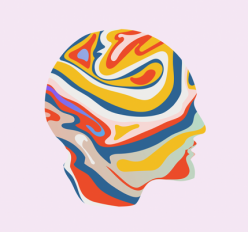Talk at the 3rd Conference of the European Network of Japanese Philosophy in Paris, November 2nd, 2017.
This presentation explores Watsuji’s Rinrigaku as a form of ethics in the study of Ningen (Human being) and analyzes Watsuji’s model of critique of western individualism and ethics based on the actions and decisions relating to subjective consciousness. Watsuji finds the individualistic conception of a human being to be a fundamental part of the modern world. In his view, the western culture and its individualist approach consider the individual at the center of all modes of existence which it then substitutes for the totality of human existence (the totality of ningen). According to Watsuji this view of the world through the lenses of an isolated ego is the starting point of modern western philosophy.
Watsuji postulates that the locus of all ethical problems lies not in the consciousness of the isolated individual, but precisely in the in-betweenness (aidagara) between person and person. From there he builds his argument that ethics is the study of ningen, where precisely this in-betweenness among individuals is what allows us to rethink the concept of ethics and move away from the individual-centered ethics that runs deep in the philosophical traditions of the West. Ethical problems cannot solely be taken at their source by relying on the individual experience and contemplative efforts, but in the in-betweenness of person and person, therefore ethics cannot be regarded as a discipline that solely defines regulative principles and clarifies moral responsibilities among fellow human beings but should be regarded as a study of Man (ningen) going beyond the simple judgement of his moral actions or agency.
The perception of an isolated ego as a starting point of modern thought where the emphasis is put on the role of human beings as contemplating subjects represents a departure from what Watsuji refers to as a concrete human existence. Watsuji, claims that ethics cannot be solely a matter of individual consciousness alone but rather something of a more relational and interdependent nature. Therefore it is important to stress the importance of the notion of aidagara as the locus of ethical problems in Watsuji’s ethics which lies not in the consciousness of the isolated individual, but precisely in the in-betweenness of person and person. Finally, we will assess Watsuji’s analysis of the notion of rin or kâta (form) – rin as in kimari or kâta, or simply order among human beings. This presentation tries to explore the relationship between these notions and their modern-day relevance.
